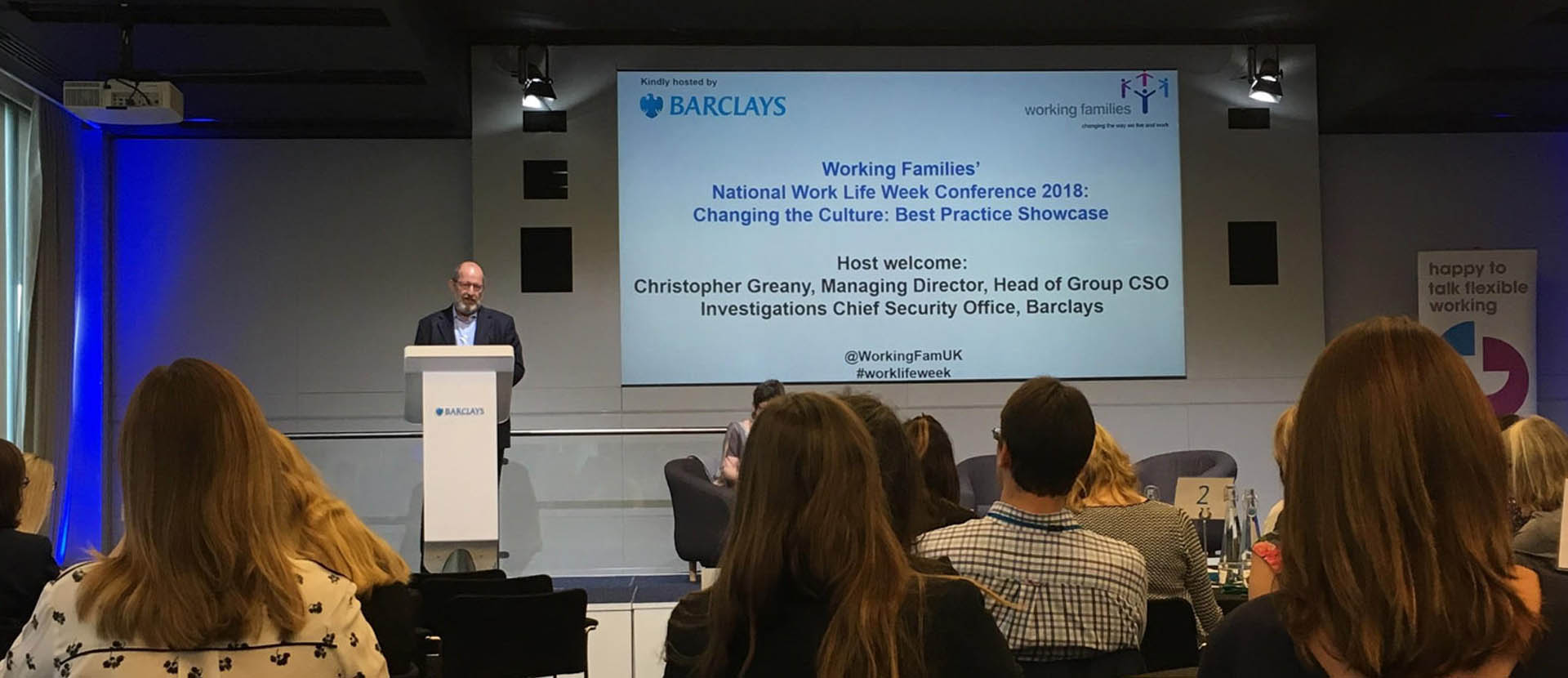Forget Family-Friendly – it’s time to be Life-Friendly
Last week I had the pleasure of attending Working Families’ National Work Life Week conference, kindly hosted by Barclays.
With representatives from almost every sector, the conference was set to be an insightful and lively discussion on how we as organisations can change culture to one that is supportive of working families.
And the event was certainly a huge success, with lots of ideas and suggestions exchanged. But one thing that really stood out for me was something that is often one of the most simple: our use of language.
In a digital world, where we’re communicating quicker and through more channels than ever before, our language can have a significant impact in how our messages are received, particularly as we’re often not face to face. Moreover, as our lives become more complex and evolve, it’s important that our language evolves simultaneously.
Here are my three language takeaways:
Talk Life-Friendly, not Family-Friendly
“We don’t talk about family-friendly, we talk about life-friendly as we all have different stages in our life”, explained chief operating officer at Independent Living Scotland, Harvey Tilley.
It’s an impactful and understandable sentiment. We all know that our lives and our circumstances are unique and personal to us: from starting a family and caring for children and adult loved ones to welcoming a new pet or taking on a hobby or pastime. Being truly flexible and inclusive means extending our policies and our approaches beyond family responsibilities to provide support for the whole person, whatever they may need.
Create Real Models, not Role Models
Having role models across an organisation can have a significant impact on our people’s performance but often, there isn’t enough role models in the business, or opportunities to meet and be inspired directly are few and far between.
But role models don’t need to be for inspiration only and unattainable. And while I won’t be giving up on my Queen B dream just yet, if we look to cultivate ‘real models’ as my friends at Working Families shared, we can open up a range of possibilities and gain the same benefits. Mentoring and reverse mentoring are just a few of the highly effective ways to grow skills and confidence within the organisation.
Think Dynamic, not just Flexible
Flexible working is a phrase that we are all familiar but for employees across the world it is usually viewed as a benefit for working mothers and carers. In 2014, Barclays piloted a new programme to remove gender bias associated with flexible working and empower all employees to have a dynamic career: Dynamic Working.
A flagship initiative shared by Barclays’ Christopher Greany, Dynamic Working offers people the opportunity to design their own work pattern in a way that suits their lives. Not a structured programme but an initiative: it’s all about empowering conversations around what’s possible.




